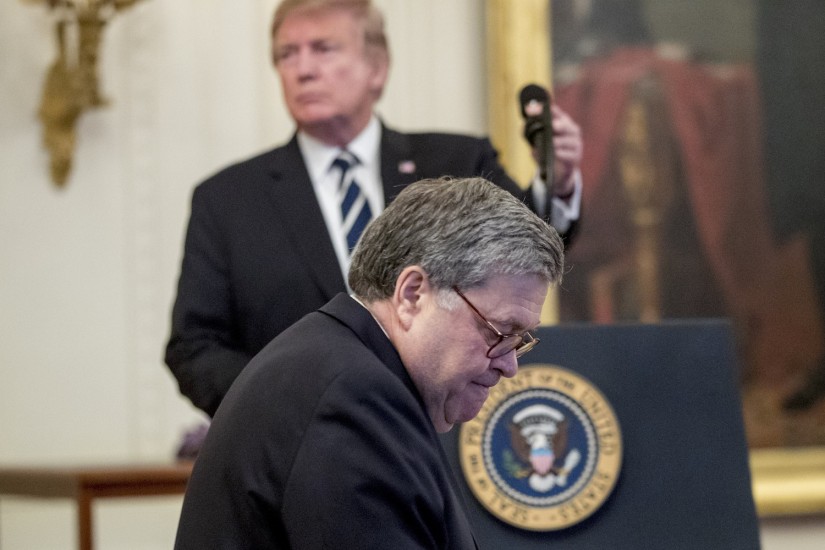The unitary theory of the presidency may be reaching its logical conclusion under President Donald J. Trump. That theory, which is referred to as the unitary executive, holds that presidents have broad, close to unlimited, powers over the executive branch. At its extreme, the theory holds that the president cannot be checked “by Congress or the Courts, especially in critical realms of authority,” as John P. MacKenzie wrote in his book Absolute Power.
The Unitary Executive, as put forward by Attorney General Barr, holds that presidential power over executive branch functions can only be limited by the voters at the next election, or by Congress through its impeachment power. This was essentially the position Barr took in his June 8, 2018 memo to the Justice Department. “Thus, under the Framer’s plan, the determination whether the President is making decisions based on ‘improper’ motives or whether he is ‘faithfully’ discharging his responsibilities is left to the People, through the election process, and the Congress, through the Impeachment process,” Barr wrote. Although Barr does not say it, a president who acted in an improper or faithless way, but who is reelected or who escapes impeachment, could indeed be above the law. Is this really what the Framers intended?
It is first important to recognize that the words “unitary executive” do not appear anywhere in the Constitution, although supporters of the theory claim to be originalists. The first known use of the term occurred during the Reagan Administration, when Attorney General Meese first put the theory forward. It was later used to justify much of President George W. Bush’s War on Terror, including extreme measures like torture in the post 9/11 world. Yet even Assistant Attorney General John Yoo, who advanced the theory during the Bush years by writing the infamous memo enabling the torture of terrorists, recently said in an interview with NPR that “the Constitution grants him [the president] a reservoir of executive power that’s not specifically set out in the Constitution.”
What Article II of the Constitution does provide is a broad statement that “the executive Power shall be vested in a President of the United States of America.” Alexander Hamilton, perhaps the foremost defender of presidential power, wrote in Federalist No. 70 that “energy in the executive is a leading character in the definition of good government.” Hamilton in part equated energy with unity and believed the presidency should be occupied by one person who could act decisively. The Constitutional Convention, which met in Philadelphia over the summer of 1787 and in which Hamilton had participated, debated and then rejected an executive council. But it was not a decision that was reached lightly, and there were numerous members of the Convention that feared a single executive could begin to resemble the British monarch.
